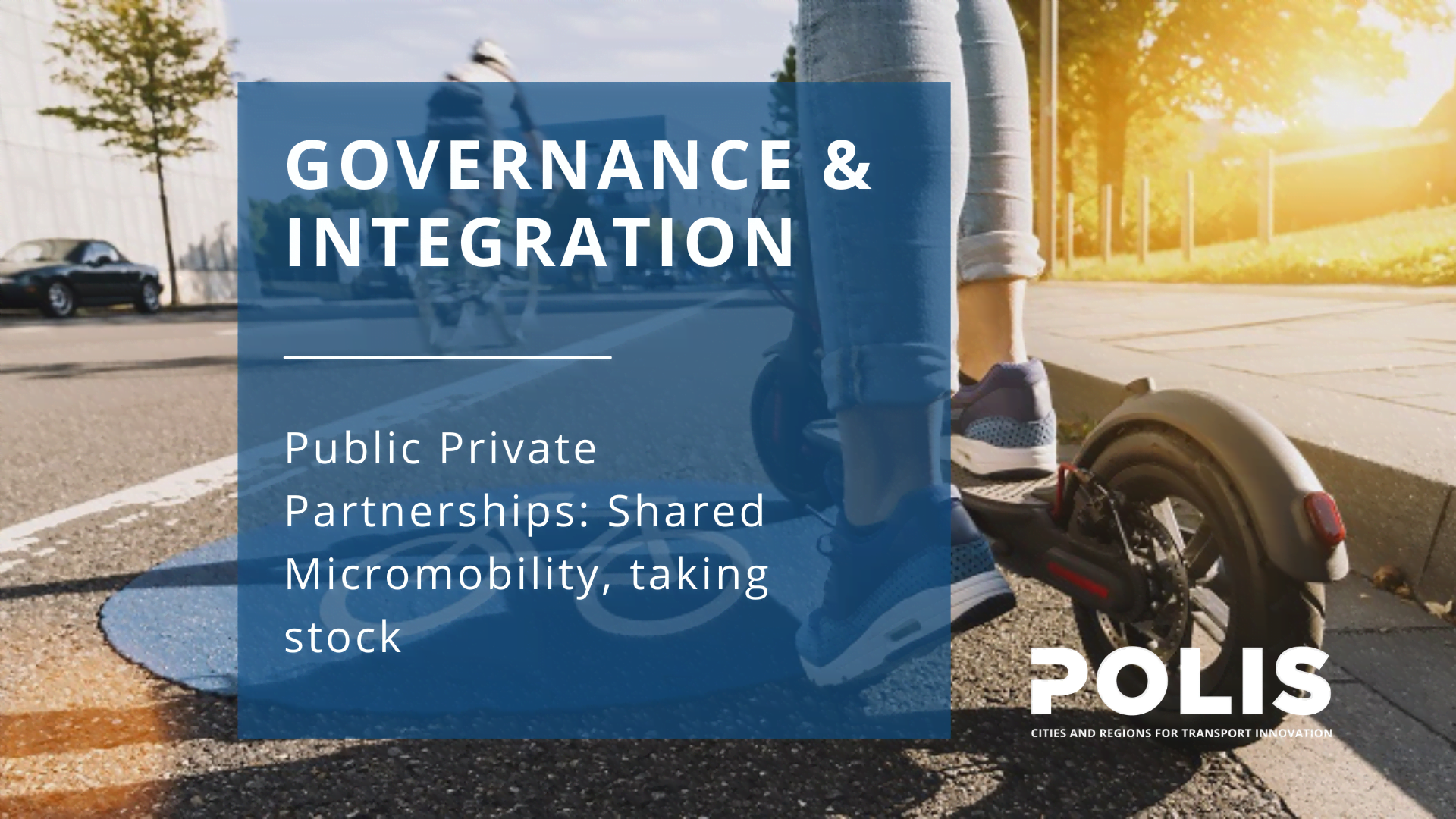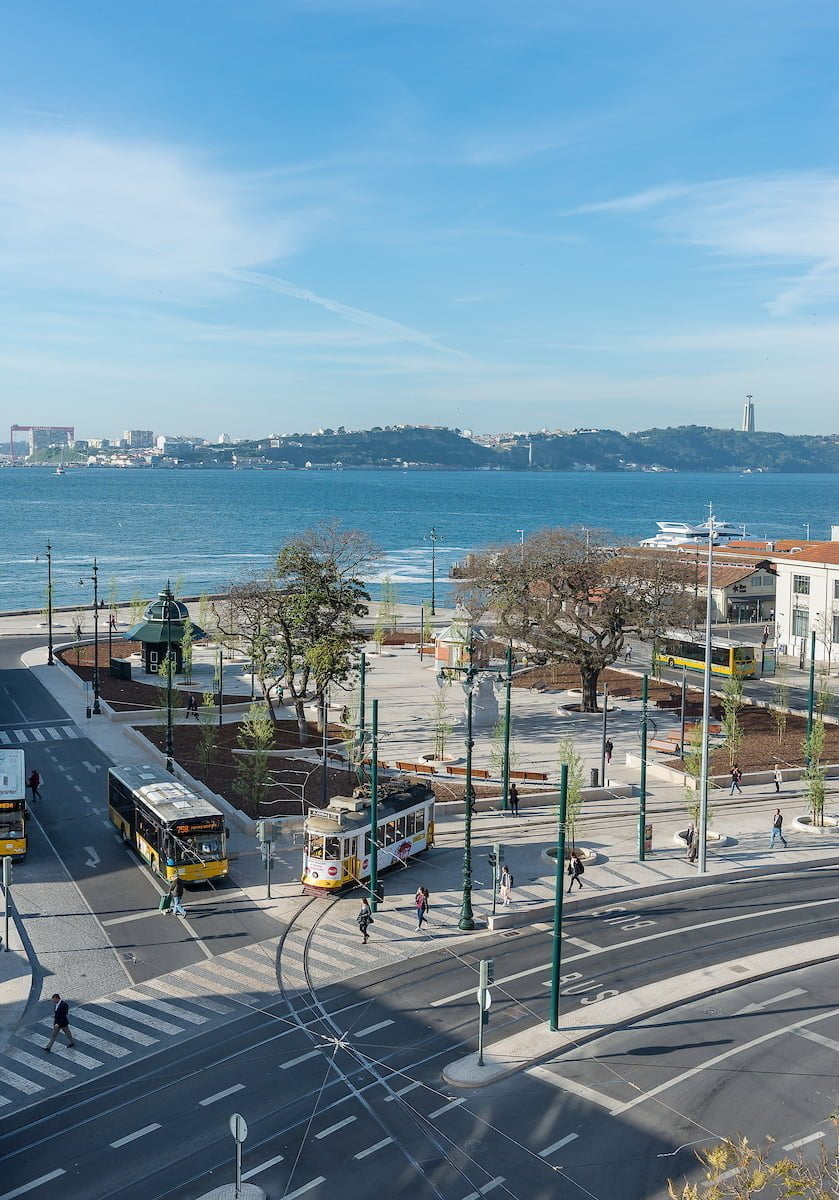Public Private Partnerships: Shared Micromobility, taking stock
Over the last several years, shared micromobility has exploded across European cities, changing the way we travel across the metropolis, yet bringing some critical challenges.
On 6 and 7 May 2021 POLIS’ Working Group Governance & Integration met to discuss the role of public-private partnerships for the next generation of urban transport. After exploring regional approaches, data sharing and shared mobility, the final session of the Governance & Integration Working Group was a chance to reflect on the current micromobility landscape and explore how new services can- and will- transform urban transport.
Where are we now, and what have we learned?
“We have been working on this issue for some time, our aim is to find out what works…and what does not,”, said Karen Vancluysen, POLIS Secretary General.
“We are not looking for a total mode shift to e-bikes and e-scooters, but rather helping our members find the best way to partner with the industry.”
Brussels, Aarhus, Lisbon and Paris joined operators VOI, Vianova, Billy Bike, Pony and Bolt for a collaborative discussion assessing the current situation and how Europe can achieve sustainable regulatory frameworks, parking and safe circulation.
The meeting addressed key questions:
- How are cities regulating private micromobility operators, and how should they be?
- What do operators think would work best?
- What partnership models are working, which are not?
- What is the role of micromobility in the shift to sustainable mobility? Is it being realised?
With all this micromobility… what we need is an index!
The European Shared Mobility Index offers the first comprehensive overview of shared mobility. Focusing on 16 diverse European cities, it provides in-depth analysis of services including bike, scooter, moped and car services.
Fluctuo has released data on European shared mobility, which exhibits the current micromobility landscape, with detailed breakdowns for several cities.
Over 219 shared mobility services are offered across these 16 cities, totalling 235,000 vehicles available (end of March 2021). Around 13 million trips were made in the month of March alone.
Cities, operators and data analysts then fed back, providing their views on the future of shared and micromobility.
Key outcomes
- The demand is there! Micromobility has been growing exponentially, and many users rely on these services, while they will not replace mass transport, they must be integrated into the modal mix more comprehensively.
- Clarity is critical: Problems need to be discussed clearly between cities and shared micromobility operators, avoiding confusion and animosity.
- Habit, not gadget! Micromobility services have now been in our cities for several years, conversations about governance have progressed rapidly and it is more important than ever to recognise how and where such services can compliment existing offerings and not merely a gimmick.
- SMEs are entering the game: Micromobility operators are beginning to look to SMEs as these cities enhance their sustainable mobility plans. SMEs will also prove fertile testing grounds for new governance models.
- Recruit the human resources: Combined mobility managers are being recruited in many cities to specifically address issues raised by micromobility.
Remaining challenges
- Clear dialogue for a clear sidewalk: Decluttering the sidewalk is essential for improving relationships with shared micromobility. There are many parking pilots being trialled at present, yet it remains a central challenge.
- Cities want to know more! There is a lack of research into the optimum ways of integrating micromobility into the transport ecosystem. In this meeting local authorities called for better understanding to make more informed decisions.
- Technical difficulties: Cities expressed their difficulty in finding technical solutions for regulating operators- particularly for parking. Lisbon has been challenging operators to enhance this.
- Hybrid happiness: A mix of free floating and docked services is an optimum way of delivering micromobility services, as citizens demand this flexibility. However, this requires improved parking and user education. Many users have not previously been bicycle users, so education to enable safe movement is needed.
Previous sessions included:
- Local & Regional Scales
- Sharing Data from Shared Micromobility
- Partnering to fill the gaps of mass transit
Want to know more about our working groups?
POLIS working groups bring our members together to discuss the leading urban mobility issues, share best practices and debate the way forward. Our Working Group meetings are open to POLIS members only, For more information regarding membership please contact our Membership Manager, Pasquale Cancellara.




